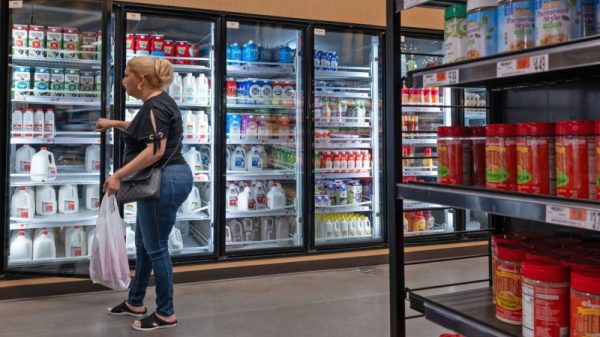On the outskirts of Cape Town an unusual resident can often be found rummaging through rubbish bins and around back yards. The chacma baboon, native to southern Africa, has become quite familiar with the urban setting.
Most of these primates spend the majority of their time in the hills and slopes on Cape Town’s periphery. However, their traditional feeding grounds are on the flatter lowground, right where the suburban sprawl has arrived in recent decades.
This has created an urban conflict, with many human residents unhappy with the presence of the primates.
Baboon researcher Esme Beamish, from Cape Town University’s Institute for Communities and Wildlife in Africa, explains that it makes sense for the monkeys to venture into the city in search of food. “Our environments are enticing not only because of the excess food that we have, the lush gardens and the bins, but also play spaces [for baboons],” she says.
“Even if we had the perfect baboon proofing of urban areas, they would still be attracted.”
Easy access to food from Cape Town’s bins means baboons can spend less time and energy foraging, and more on socializing with potential mates and the rest of their group, adds Beamish.
However, there are consequences for baboons and humans alike. Some baboons have come into conflict with residents and their pets. Whilst looking for food, others have ruined farmers’ and local winemakers’ crops.
Beamish is concerned for the monkeys’ welfare. “[Baboons] come into contact with dogs, motorcars and electric power lines. These are some of the major causes of death and injury,” she says.
“What we now have is … not a very healthy population. They’ve got skin conditions because they’re spending too much time in bins. They’ve got appalling teeth.”
The local council and residents have previously attempted to mitigate these issues by reducing food waste and using “baboon-proof” bins, as well as fences that were introduced in 2013 to keep baboons out.
In some instances, residents have resorted to shooting the monkeys with pellet guns and particularly aggressive, or “problematic,” baboons have been euthanized.
The presence of baboons on the city’s streets has fallen slightly, but some people fear the animal could disappear from the surrounding natural areas if it is pushed too far. The city announced in September plans to construct more fences to keep baboons confined to more rural areas.
The initial plans suggest erecting fences at a number of sites along the top of Cape Peninsula, a natural habitat for the animals, and more fences have been proposed along the edge of suburbs in west Cape Town. By reducing access to these bountiful areas, the hope is that more baboons will remain on the hillsides.
Jenni Trethowan, founder of conservation group Baboon Matters, agrees that keeping the primates apart from humans is the best thing for both. “By continuing to make it difficult, hopefully the baboons will decide ‘meh, lets just stay up here,” she says.







































